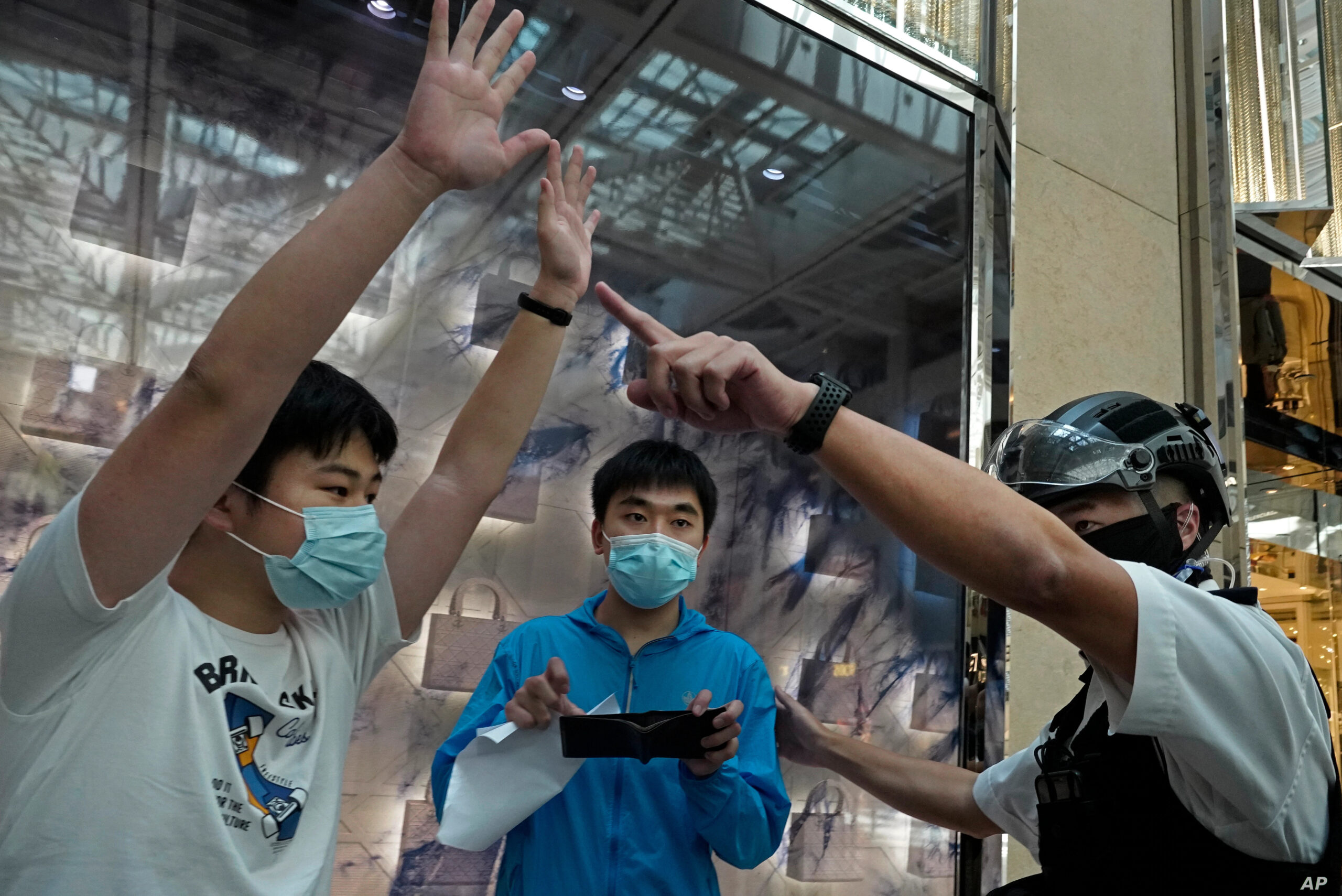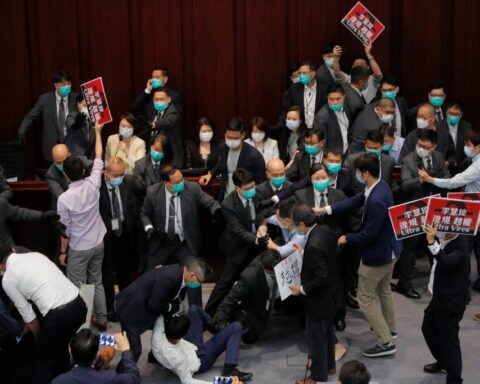The implementation of Hong Kong’s national security law by the Chinese Communist Party has undoubtedly been the catalyst spurring sweeping changes in the city.
With residents living in fear of speaking out against the law, and prominent activists jailed or in self-exile, the city is being reshaped by Beijing. Hong Kong’s “high degree of autonomy” has been altered, and the “one country, two systems” arrangement appears more fractured than ever before.
A year ago, Hong Kong was a different place. Street demonstrations had been relentless. The extradition bill that sparked the protests had been withdrawn. Hong Kong’s district elections saw victories for the pro-democracy camp, while U.S President Donald Trump even signed the Human Rights and Democracy Act for Hong Kong.
However, then came the outbreak in Wuhan of COVID-19, the disease caused by the coronavirus, and those in Hong Kong feared the worst.
With the scars of the SARS virus in 2003, Hong Kong residents acted quickly by wearing masks and staying indoors, as the government imposed social-distancing restrictions within the city.
The precautions had a price, though. As street protests decreased, the Hong Kong government and Beijing regrouped to tackle the city’s political unrest.
Fast forward to May, and internal changes had started to accelerate.
The news broke that Beijing’s National People’s Congress Standing Committee was to impose a national security law upon Hong Kong. Street protests followed in scenes similar to those of 2019.
Beijing pressed ahead, though, and on May 28 the national security law was passed.
The law came into effect June 30, prohibiting acts of secession, subversion, foreign collusion and terrorism. Sentences include life imprisonment, with closed-door trials and extradition to the mainland also possible.

Jimmy Lai, media tycoon and founder of Hong Kong’s Apple Daily newspaper, said at the time the new law was the “death knell of Hong Kong.”
On July 1, thousands of protesters rallied on the streets despite a police ban. Overall, 370 protesters were arrested, with at least 10 for violations of the new law.
Shortly afterward, people began to adjust to the new law.
Prominent activist Nathan Law fled the city, while the pro-democracy activist group Demosisto, led by Joshua Wong, disbanded. Self-censorship increased, as protesters deleted their social media history out of fear of the law. Libraries and schools were ordered to remove pro-democracy literature, while the month also marked the opening of the official National Security office, formerly a hotel.
Political arrests
It didn’t take long for the first political arrests to begin.
Pro-democracy activist Tony Chung, 19, was arrested on suspicion of “secession,” before being bailed out. He later sought asylum at the U.S. Consulate but before he could reach the consulate, authorities arrested and charged him, with a lengthy prison sentence now looking likely.
Lai and activist Agnes Chow were the first high-profile arrests on “foreign collusion” and “inciting secession” charges, respectively. Both were released on bail at the time.
At the end of August, a dozen dissidents desperately attempted to flee Taiwan by speedboat. The Chinese coast guard intercepted them, and all were charged across the border under mainland China’s jurisdiction.
The new law didn’t just target activists.
A Hong Kong journalist was arrested over her research for a report investigating an attack on pro-democracy supporters.
After Hong Kong disqualified four elected pro-democracy legislators in the Legislative Council, the remaining 15 pro-democracy legislators resigned in solidarity. Hong Kong is now without opposition to the pro-Beijing camp in the Legislative Council.

The attention was soon back on pro-democracy leaders Wong, Chow and Ivan Lam, who were all given jail terms for illegal-assembly charges, linked to a protest in June 2019. They all avoided potential life imprisonment as the offenses came prior to the new national security law going into effect.
“It’s not the end of the fight,” Wong said upon entering prison.
Lai was then formally charged under the security law. He is alleged to have “colluded with foreign forces” and is currently in prison after being denied bail. Lai, 73, had eerily predicted his fate in June.
“The national security law has done great damage to the whole democratic movement. We have to stand firm and be prepared to go to prison, in turns,” Lai said.
International response
Western critics worldwide have slammed the law, saying it takes away Hong Kong’s promised autonomy and freedoms. The U.S canceled its extradition treaty with Hong Kong, as did Canada, Britain, Australia and New Zealand.

The U.S also withdrew Hong Kong’s preferential trade and financial status, while sanctions were placed on Chinese government officials, including Hong Kong Chief Executive Carrie Lam, further tainting the city’s image.
Britain announced it would extend the rights of British national overseas passport holders, with nearly 3 million Hong Kong residents eligible “for a path to citizenship.”
Hong Kong’s status as a financial hub is also in question after giants like HSBC, which publicly backed the law, have reportedly continued to freeze accounts of those with links to the pro-democracy movement, including media executives and lawmakers.
Twenty-seven nations condemned the law at a June U.N. Human Rights Council meeting, but 53 approved, including North Korea, Iran and Venezuela.
Hong Kong’s plight has been remarkable, as authorities have moved quickly to silence dissent in the city. Despite Lam’s argument that the new security law has restored law and order, there are still thousands of discontented dissidents under police investigation.
According to one veteran activist, more bad news should be expected.
Lee Cheuk-Yan believes Hong Kong’s crackdown will be “worse” next year, as the city is further reshaped by Beijing.
“Even worse, in every aspect. The retaliation has not finished. It will go on in 2021,” he said.
VOA




